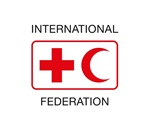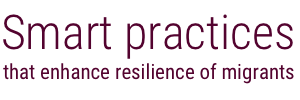Teams of physicians provide care over a longer period of time for a consistent group of migrants. The continuity of services enables physicians to build relationships with and know their patients and thus better serve their health care needs.
Family Health Teams (FHT) are multidisciplinary groups of medical practitioners, who provide comprehensive and continuous care to migrant patients and families registered with them. Each Family Health Team (FHT) is made up of at least one doctor, a nurse and a clerk, and manages approximately 1500 family files with an average family size of 4.6.
Teams provide services which include maternal and child health, family planning, preventive and curative care, outpatient and diagnostic services, oral care, specialists and pharmacies and referrals. In addition, teams use electronic record systems to keep track of the medical histories of the patients and families under their care. This record enables teams to recommend more individualized advice and treatment based on consolidated information about the patient’s health. Several service quality improvements have been noted in health centres implementing the FHT approach, including a decrease in the average number of daily medical consultations per doctor, an increase in consultation time, and a decrease in the antibiotics prescription rate.
By the end of 2012, FHT had expanded to 36 clinics, mostly in Gaza, the West Bank and Jordan.
Design. [P1] Focuses on the need from migrant communities for more personalized medical service.
Programme. [P9] Responds to the displacement of Palestinians.
- Staff and beneficiaries’ resistance.
- Infrastructure to reorganize health centres for FHTs.
- Infrastructure (e.g. electricity and connectivity) and staff training for eHealth.
- Cost saving to rehabilitate existing centres for FHT.
- To overcome electricity issues install generators and use laptops instead of desktops; strong connectivity needed.
- Continuous on-the-job training to health staff.
- Strengthen communication with migrant communities.
Smart practices
Smart practices report and database survey
About the report
People migrate in pursuit of a better life for themselves and their families. As described in the International Federation of Red Cross and Red Crescent Societies’ (IFRC) Policy on Migration, “migrants are persons who leave or flee their habitual residence to go to new places – usually abroad – to seek opportunities or safer and better prospects.
Read more
About the International Federation

